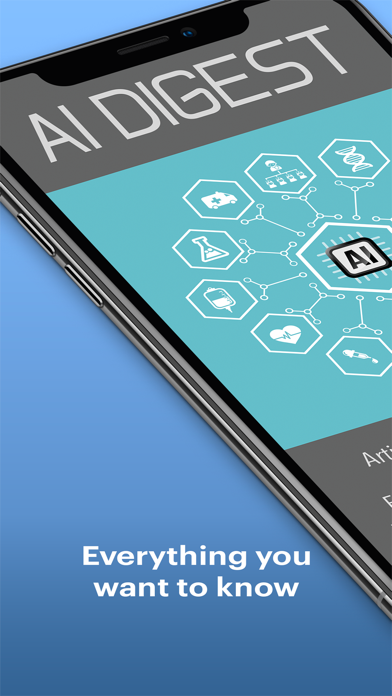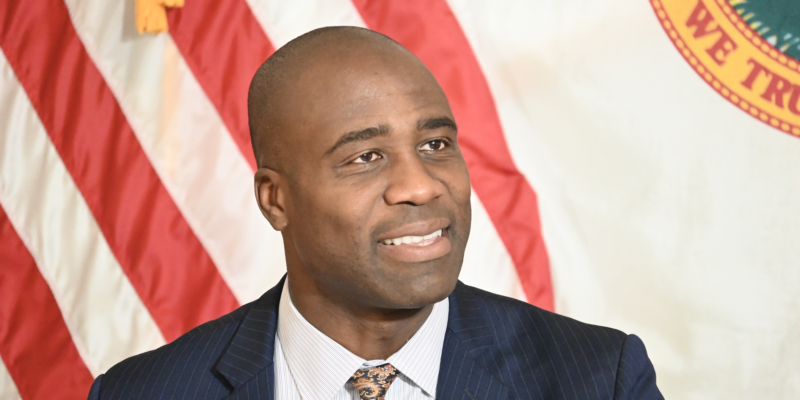Put A Finger Down: Has TikTok Misdiagnosed Your ADHD?

Table of Contents
The Allure of TikTok's ADHD Content
TikTok's short-form video format and personalized algorithm create a powerful environment for the spread of information—and misinformation. The ease with which users can find relatable content contributes significantly to the issue of TikTok ADHD misdiagnosis.
Relatable Content and Confirmation Bias
TikTok's algorithm excels at reinforcing pre-existing beliefs through personalized content feeds. This can lead to confirmation bias, where users selectively focus on information confirming their suspicions about having ADHD.
- Examples of common TikTok trends: Videos showcasing relatable struggles with organization, time management, impulsivity, and hyperfocus often go viral. These can resonate deeply with viewers experiencing similar challenges.
- Sense of validation: Finding others sharing seemingly identical experiences can be validating, potentially leading individuals to believe they, too, have ADHD without proper medical evaluation.
- Dangers of self-diagnosis: Self-diagnosing based solely on relatable videos is extremely risky. It can lead to unnecessary anxiety, inappropriate self-treatment, and delay in seeking proper medical attention if a genuine condition exists.
Lack of Professional Guidance
The majority of ADHD-related content on TikTok lacks professional guidance from qualified medical professionals like psychiatrists or psychologists.
- Inaccurate information: Many videos present anecdotal evidence and personal opinions as factual medical information.
- Anecdotal vs. scientific evidence: While personal experiences are valuable, they cannot replace the scientific rigor of a professional diagnosis. TikTok should not be your primary source for medical advice.
- Importance of fact-checking: Always verify information found online with reputable sources like the National Institute of Mental Health (NIMH) or the American Psychiatric Association (APA) before making any decisions about your health.
Distinguishing Between ADHD Symptoms and Everyday Experiences
Many common experiences overlap with ADHD symptoms, leading to potential misinterpretations and inaccurate self-diagnosis on platforms like TikTok.
The Overlap with Other Conditions
Several everyday experiences can be easily mistaken for ADHD symptoms, particularly when viewed in isolation or without professional assessment.
- Examples of mistaken experiences: Procrastination, forgetfulness, difficulty focusing, impulsivity—these are all common human experiences, and not necessarily indicative of ADHD. Other conditions such as anxiety, depression, or learning disabilities can share similar symptoms.
- Co-morbid conditions: ADHD often co-occurs with other mental health conditions. A proper diagnosis considers these possibilities to ensure accurate identification.
The Severity and Persistence of Symptoms
A key differentiator between occasional struggles and a clinically diagnosed condition like ADHD lies in the severity and persistence of the symptoms.
- DSM-5 criteria: The Diagnostic and Statistical Manual of Mental Disorders, 5th Edition (DSM-5), outlines specific criteria for ADHD diagnosis. Meeting these criteria requires consistent symptoms impacting multiple areas of daily life, not just occasional lapses in focus or organization.
- Consistent symptoms impacting daily life: To be diagnosed with ADHD, symptoms must significantly impair functioning in social, academic, or occupational settings.
- Need for professional assessment: Only a qualified professional can accurately assess the severity, persistence, and impact of symptoms to determine if they meet the criteria for an ADHD diagnosis.
The Importance of Professional Diagnosis
Seeking a professional diagnosis for ADHD is crucial for accurate assessment, appropriate treatment, and effective management of the condition.
Comprehensive Evaluation
A professional ADHD diagnosis involves a multi-faceted evaluation process.
- Psychological evaluations: In-depth interviews and questionnaires assess symptoms, behavior patterns, and overall functioning.
- Neuropsychological testing: These tests can help identify cognitive strengths and weaknesses and determine if cognitive deficits contribute to ADHD symptoms.
- Clinical interviews: Discussions with a psychiatrist or psychologist help to understand the history, context, and impact of symptoms.
- Role of a psychiatrist or psychologist: These professionals are trained to diagnose and treat ADHD, offering personalized treatment plans and support.
Treatment and Support
A proper diagnosis unlocks access to effective treatment and comprehensive support systems crucial for managing ADHD effectively.
- Medication management: Medication can be a helpful part of managing ADHD symptoms for some individuals, but it should always be prescribed and monitored by a qualified professional.
- Therapy options: Cognitive Behavioral Therapy (CBT) and behavioral therapy can teach coping mechanisms and strategies for managing ADHD challenges.
- Building a support network: Connecting with support groups, therapists, and other individuals with ADHD can provide valuable emotional support, practical advice, and a sense of community.
Conclusion
The casual approach to ADHD diagnosis prevalent on TikTok risks misinforming vulnerable individuals and delaying proper care. Self-diagnosing based on relatable content is dangerous and can lead to inaccurate understanding, inappropriate self-treatment, and delayed access to necessary support. Don't let TikTok be your only source of information on ADHD. Seeking a professional diagnosis from a qualified healthcare professional is crucial for accurate assessment, effective treatment, and improved quality of life. Remember, ADHD is a serious condition that requires proper medical attention. Find mental health professionals in your area through resources like [link to a relevant resource, e.g., Psychology Today]. Take the necessary steps toward understanding your mental health and seeking the support you deserve.

Featured Posts
-
 Starbucks Workers Reject Proposed Pay Raise From Company
Apr 29, 2025
Starbucks Workers Reject Proposed Pay Raise From Company
Apr 29, 2025 -
 Us Attorney Generals Warning To Minnesota Compliance With Transgender Athlete Ban
Apr 29, 2025
Us Attorney Generals Warning To Minnesota Compliance With Transgender Athlete Ban
Apr 29, 2025 -
 Ai Digest Transforming Repetitive Documents Into Informative Poop Podcasts
Apr 29, 2025
Ai Digest Transforming Repetitive Documents Into Informative Poop Podcasts
Apr 29, 2025 -
 Jeff Goldblums Oscar Snubbed Performance In The Fly A Case For Recognition
Apr 29, 2025
Jeff Goldblums Oscar Snubbed Performance In The Fly A Case For Recognition
Apr 29, 2025 -
 Attorney Generals Transgender Sports Ban Minnesota Under Scrutiny
Apr 29, 2025
Attorney Generals Transgender Sports Ban Minnesota Under Scrutiny
Apr 29, 2025
